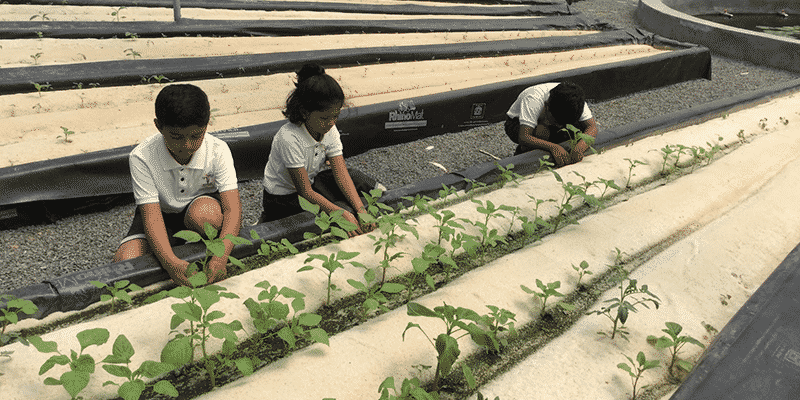
With the farmers’ strike in full swing in India’s capital , their importance and their contribution to the Indian economy through their supply of food, fabrics, livestock,etc ,has never been more stark.Life without them is unthinkable!
These farmers and other associated people in agriculture need to have multiple skills to run this multifaceted business. Raw materials ( like seeds, tools, fertilizers ) must be purchased, certain services must be sought and products sold. All this entails an understanding of the agribusiness market and economics to ensure a profit.
Farmers work with individuals and communities to supply the needs of their farm and sell their products. Farmers must manage their funds, compare prices, and make wise financial decisions.
Farmers use mathematical skills and science in their day-to-day farm activities.
For example, farmers use mathematical skills to estimate the seed amount needed, the cost to plant their crop based on the area of cultivable land they possess, to purchase equipment or tools needed and make payments for various purchases. Mathematical calculation is essential for determining the amount of tax that needs to be paid and also to track the weight of cattle, the milk the cows produce and the crop yield per season, etc.
The nature lab facility at our Babaji Vidhyasharam School Chennai is an excellent place to witness the application of math and science skills in real life when growing vegetables. Math and science both are integrated and it's amazing how we can apply the textual knowledge practically.
The nature lab constructed over half an acre land is designed for cultivating vegetables organically using aquaponics. The circular cultivating area receives water from a fish tank. This system itself requires a lot of calculation. The reason behind the cultivable bed being in the shape of a circle and not a square, the calculation of the flow of water to each sector of the circle.....and so on. The calculations do not stop here.
Fish produce ammonia-rich waste which dissolves in water, this water is used to water the plants. The bacteria break down this into nutrients for the plants. The amount of water needed so that the plants get enough nutrients, the amount of fish that must be in the tank to get a substantial amount of ammonia-rich water, the amount of water that would be needed to house a certain number of fish, the tank dimensions for housing the required volume of water and fish mass, the list goes on. Checking the pH of the water, ammonia level is also an important step where theoretical chemistry is seen practically.
The whole process showcases sustainable agriculture, where water- a precious resource is reused and also avoids the use of chemicals as fertilizers.
Not only does growing a plant need math or science but also allied skills such as decision-making researching, collaborating and communication skills. Deciding the fish breed, deciding the time to sow a particular seed, collaborating with people and deciding the price of the harvested product gives a holistic learning experience.
The students @BVS who have access to the fantastic facility find this outdoor learning refreshing and they develop a lot of critical thinking and problem solving skills while applying the concepts of Math and Science in real world applications. It also gives them a sense of responsibility when they are assigned as a team to take care of the ph levels of the fish tank or a patch of vegetables or the measuring, pricing & marketing of the finished product. All these activities makes possible life skills development and career readiness of the students too.
Agriculture being offered as an optional subject for the Grades 11&12 @ Babaji Vidhyashram is another indication of the school management ‘s vision to create informed and technically sound agriculturists for the future of our country. And, ofcourse them applying the concepts learned in Math and Science in their chosen careers will further accentuate their own success stories and that of their nation!
Please check this link for the paper presented by our school management on this topic at a National CBSE teachers’ conference.https://docs.google.com/document/d/1pqU5euz36k6tkI1XmbJk-jXN1rAZfmnUPow8_Jn7EjE/edit
